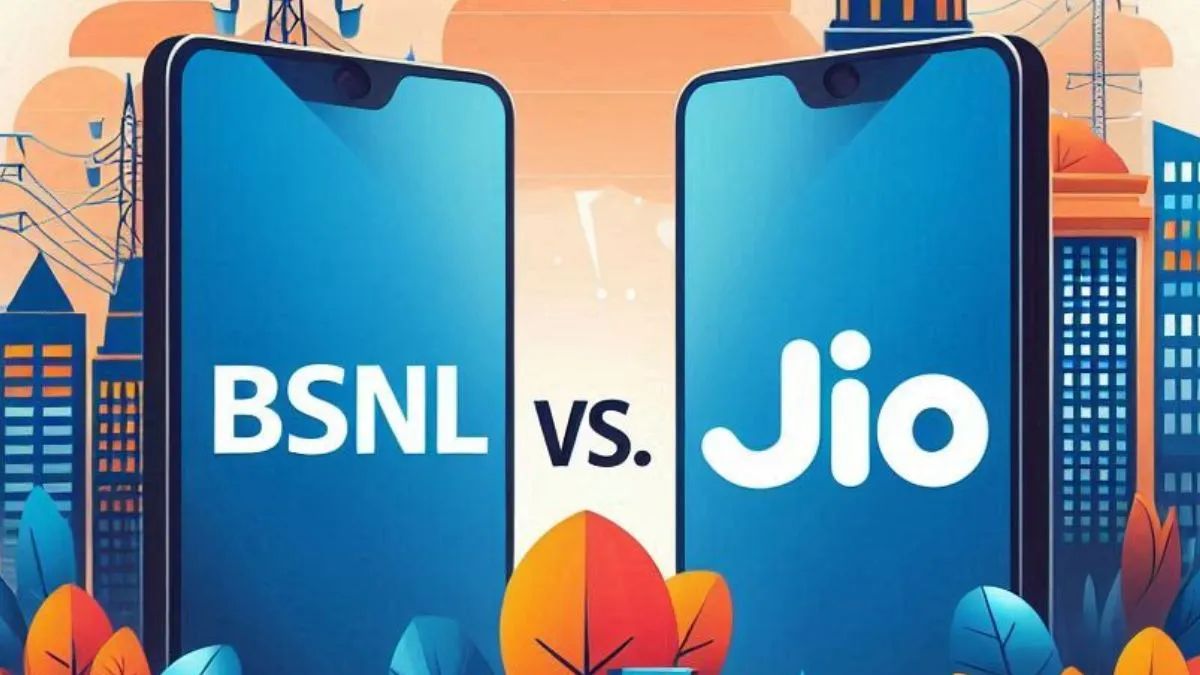The recent tariff hikes by leading telecom giants Reliance Jio, Bharti Airtel, and Vodafone Idea (Vi) are beginning to ripple through the industry, with significant shifts in user dynamics. Reliance Jio alone saw 10.9 million customers discontinue their subscriptions in the second quarter following the price increase. While the private telecom companies maintain that the decline in user numbers will not dent their profitability, the developments have opened opportunities for Bharat Sanchar Nigam Limited (BSNL) to stage a potential comeback.
BSNL Gains Amid Private Players’ Setback
Following the tariff hikes announced on July 3 and 4, which saw prices increase by 11% to 25%, BSNL experienced a remarkable surge in its user base. The state-owned telecom operator reportedly gained 2.5 million new connections and witnessed around 250,000 users switching from private providers via mobile number portability (MNP).
Social media platforms have played a critical role in this shift. Hashtags such as #BSNLkiGharWapsi and #BoycottJio trended widely, reflecting growing dissatisfaction among users of private telecom companies. Many customers have voiced concerns over the steep pricing policies adopted by private players, making BSNL’s competitively priced plans an attractive alternative.

Pricing Disparity Driving Customer Migration
One of the most significant factors behind BSNL’s resurgence is its aggressive pricing strategy. For instance, Reliance Jio and Bharti Airtel offer annual plans with 365 days of validity for Rs 3,599, providing 2GB of data per day. In comparison, BSNL’s equivalent plan is priced at just Rs 2,395 and comes with an extended validity of 395 days.
The contrast is even sharper in entry-level plans. Airtel and Vodafone Idea offer minimum 28-day validity plans starting at Rs 199, while Jio prices its equivalent at Rs 189. Meanwhile, BSNL provides comparable options beginning at just Rs 108, with multiple plans available between Rs 107 and Rs 199. Notably, BSNL’s Rs 229 plan includes unlimited data, voice calls, and access to select OTT platforms—features that add substantial value to its offerings.
BSNL’s pricing strategy has positioned it as a viable alternative, especially for price-sensitive consumers dissatisfied with the steep tariffs of private players. This has helped the state-owned operator secure a foothold in a market dominated by private giants.
BSNL’s 5G Aspirations: A Game Changer?
As the fourth-largest telecom operator in India, BSNL is also gearing up to roll out its 5G services by 2025. While private players like Reliance Jio and Airtel are aggressively expanding their 5G infrastructure, BSNL’s entry into the next-generation telecom race could mark a significant turning point for the company.
BSNL’s ability to combine competitive pricing with next-gen services will determine its long-term prospects. Meanwhile, Vodafone Idea lags behind its competitors in the 5G rollout, adding to its ongoing struggles in retaining market share.

Challenges for Private Telecom Giants
The tariff hikes implemented by Jio, Airtel, and Vi have drawn criticism for their steep increases, especially amid rising economic pressures on consumers. Despite the backlash and loss of users, Reliance Jio emphasized that the decline would not impact its business significantly. However, the user churn does present opportunities for competitors like BSNL to carve out a larger market share.
Airtel and Jio continue to invest heavily in their 5G expansion plans, banking on superior service quality and faster data speeds to retain and attract users. However, the sharp rise in prices may alienate budget-conscious customers, pushing them toward BSNL’s affordable offerings.
Even so, challenges remain for BSNL. While its competitive pricing appeals to cost-sensitive users, the company must overcome operational inefficiencies, improve network quality, and expedite its 5G rollout to compete effectively with private giants in the long term.
Is This BSNL’s Comeback Moment?
BSNL’s recent gains suggest that the state-owned telecom operator is seizing the moment to reposition itself in the market. With competitive pricing, a growing user base, and 5G ambitions, the company is gradually transforming its image from a struggling state entity to a contender in the competitive telecom space.
While private players like Jio and Airtel continue to dominate with superior infrastructure and larger customer bases, BSNL’s strategy of affordability and value-added features is proving effective in capturing a segment of the market. Whether this marks a true resurgence for BSNL will depend on its ability to maintain momentum, deliver consistent service quality, and execute its 5G plans efficiently.
The evolving dynamics in India’s telecom industry reflect a significant shift, with customers increasingly seeking value in a market marked by rising costs and competitive pressures. As the battle for dominance continues, BSNL’s resurgence could be the shake-up the industry needs.

